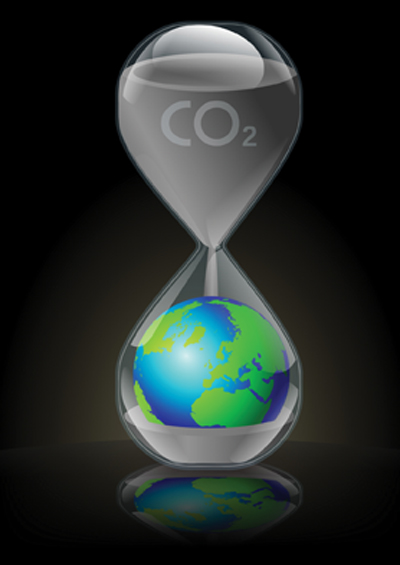
Features
Operations
Alternate Approach: United Nations cop out
Glenn Reynolds, a University of Tennessee professor and author, said, “I’ll believe it’s a crisis when the people who say it’s a crisis start acting like it’s a crisis.”
January 18, 2010 By David Carr
Glenn Reynolds, a University of Tennessee professor and author, said, “I’ll believe it’s a crisis when the people who say it’s a crisis start acting like it’s a crisis.”
 |
|
Floating on Copenhagen’s St. Jorgens Lake, not far from the site of last December’s United Nations Climate Change Conference (COP-15, so named because this is the 15th international Conference of Parties to assess progress in dealing with climate change), is a three-storey, illuminated cube representing the space a single metric tonne of CO2 would occupy. The world apparently emits the equivalent of 32 billion cubes a year, which places air transport’s contribution at approximately 670 million cubes, or less than three per cent of all CO2 emissions.
About the need to burn significantly less fossil fuel there can be no argument. Cutting emissions by reducing our dependence on oil is not only solid environmental policy, it is sound economics, especially for an industry recently pummelled by record high oil prices and unlikely to catch its breath from the recession before the price of crude surges upward. But the contradictions at Copenhagen threaten to overwhelm the science of climate change.
At this conference Canada filled its environmental trophy case with four more Fossil of the Day awards; tongue-in-cheek trophies handed out daily by the Climate Action Network to the country that did the most to obstruct that day’s proceedings.
Unfortunately there was not a similar “oblivious to the optics” award (we will call them the Obbies for short). That certainly would have gone to the climate change heavy hitters who descended on Copenhagen in style, on board a fleet of 140 private jets. A public relations blunder on par with the Big Three North American car executives taking corporate jets to Washington to beg Congress for a bailout.
The blunder was compounded by the spectacle of 1,500 stretched limousines (most, including only five hybrids, driven in from Germany and neighbouring Sweden) clogging the streets, despite the fact that Copenhagen is one of the world’s great walking cities and has excellent rail links to the airport.
How do they get away with it? Some by employing a copout known as carbon offset. The carbon offset is a Get Out of Jail Free card for pampered polluters too privileged to reduce their own carbon footprint but rich enough to have it reduced for them.
Example: The Copenhagen conference produced an additional 41,000 tonnes of CO2 – a wall of carbon equal to the two-week output of a developed city the size of Abbotsford, B.C. To neutralize those emissions, the Danish government is investing in 20 new energy-efficient kilns in Dhaka, Bangladesh, taking 100,000 tonnes of CO2 out of one of the world’s most polluted cities.
A nice return on investment, but hardly the point. Unlike earlier conferences, COP-15 was supposed to set the framework for combating climate change after the Kyoto Protocol expires in 2012. New environmental practices, including greater reliance on teleconferencing, could have been showcased.
Instead, Copenhagen made air transport’s case for it: the corporate jet is an important business tool; there is no substitute for “being there”; and, aviation is an indispensable part of global economic and social development.
In return, air transport, a dirty industry, arrived in Copenhagen with clean hands. Since Kyoto was signed in 1992, commercial aviation has shed more than 70 million tonnes of CO2, a sharp contrast to a 33 per cent overall increase in global emissions over the same period. The International Civil Aviation Organization (another UN agency) is promising to cut emissions in half by 2050, beginning with a seven per cent reduction in 2009, although much of that can be attributed to the recession and the grounding of airplanes.
Even so, aviation remains a target for government and climate changers who want to weigh the industry down with layers of taxation intended to curb use and pay for environmental programs in developing nations. The result will be to push the product out of reach of those without the private wealth or access to public resources to buy carbon offsets.
The UN turned Copenhagen into an international playground. Whatever else will be accomplished, the conference illustrated the world’s dependence on aviation. Still, not everybody flew into Copenhagen. Approximately 450 UN representatives, delegates and climate change activists helped reduce the conference’s carbon footprint by climbing on board the Climate Express in Brussels, a special train made up entirely of first-class carriages stocked with free gourmet food and champagne. If Via Rail could do that, it is unlikely that anybody in Canada would fly.
David Carr is a Wings writer and columnist.